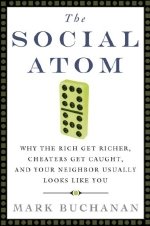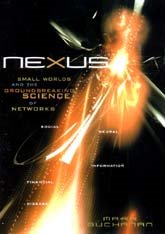An article in the NYT describes the growing concern over economic conditions, and all of the candidates' immediate desire to assign blame on you-know-who and to proclaim how they'd do better. It's obviously an irresistible way, I suppose, to score points. Much as I think the Bush administration has acted childishly and incompetently in almost every area, however, I find it awfully hard to give them any responsibility for the property market, or the irresponsible lending practices that pumped the bubble for so long. That's happened before and it will happen again. (They can be attacked much more reasonably on their policies that have led to exploding inequality.)
But I'm still not convinced that anyone can really predict and manage an economy on the basis of anything more scientific than the reading of tea leaves. As far as I can tell, economics, especially the "macroeconomics" of entire economies, is still very far from being a real science. (I wonder if any readers out there -- perhaps, some economist -- can point me to any data showing that economists can predict the movements of economies with anything like the accuracy one routinely finds in the rest of science? I'd be very interested to see such evidence.) This post from the Leiter Reports, although three years old, gives an interesting (legal philosopher's) perspective on economics as a science, and it's one I find myself largely agreeing with. Economics has been so committed to rational behavior, to proving mathematical theorems (which makes it look scientific), and even worse, perhaps, to the notion that all systems can be understood by supposing they are in some equilibrium, that it's tied one or both arms behind its back in its efforts really to understand economic phenomena.
Remarkably, these theoretical addictions still persist. An economist told me that it's still very hard to publish in some of the "best" economics journals if one does not assume that economic agents are fully rational. This is a problem in the sociology of the economics discipline. But it's changing, of course, as it would have to if economics is going to grow into something more intellectually sound. One promising development, for example, is a great body of work in computational economics, in which researchers aim to make plausible assumptions about human behavior -- based hopefully on empirical evidence -- and then use computational models to explore outcomes in large systems of interacting agents.
For now, we're still largely stuck with metaphors, and mixed ones at that. Take this gem from the NYT article on how the Fed manages the money supply:
Typically, the Fed raises interest rates to ward off inflation when the economy is growing fast and in danger of overheating, and lowers rates when the economy is slackening.
Apparently, the economy is sometimes an automobile at risk of overheating, and at other times, a sailing vessel stranded as its sails slacken in weak winds. Take two metaphors and call me in the morning. But can macroeconomics go much beyond such metaphors? I'd like to be convinced, but I'm not yet.



